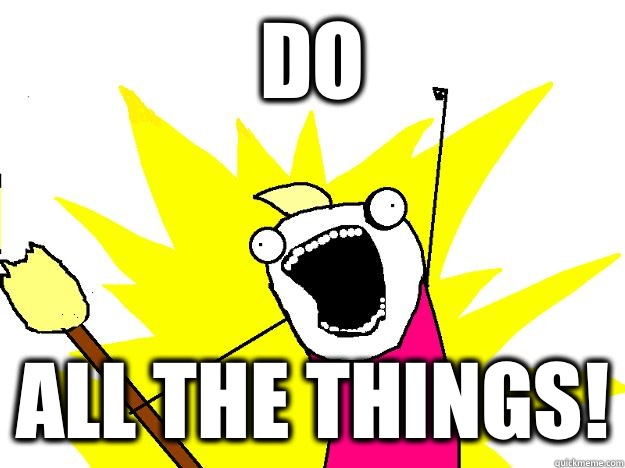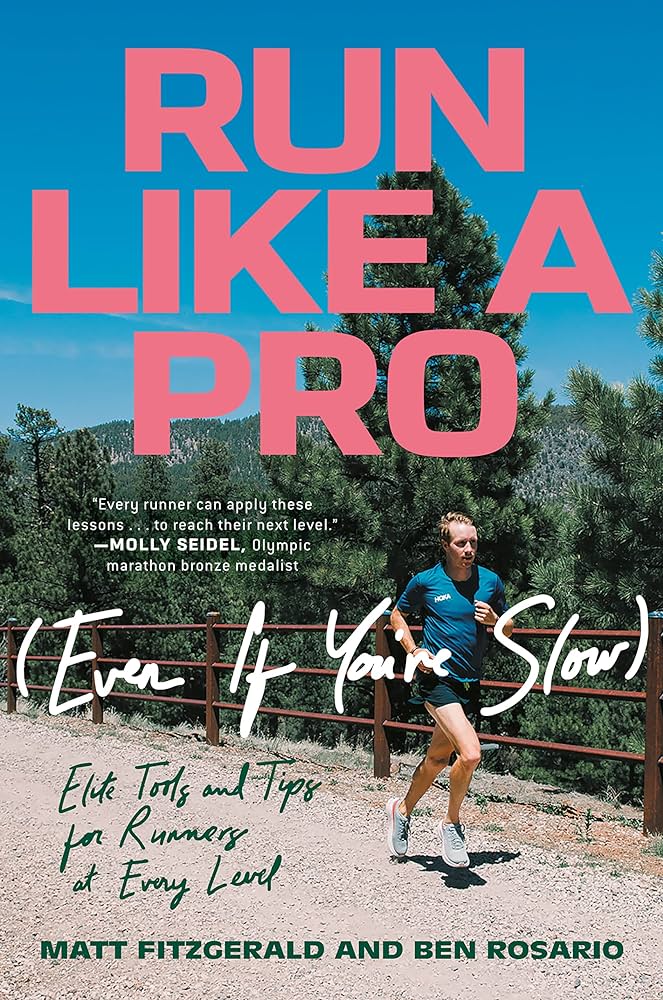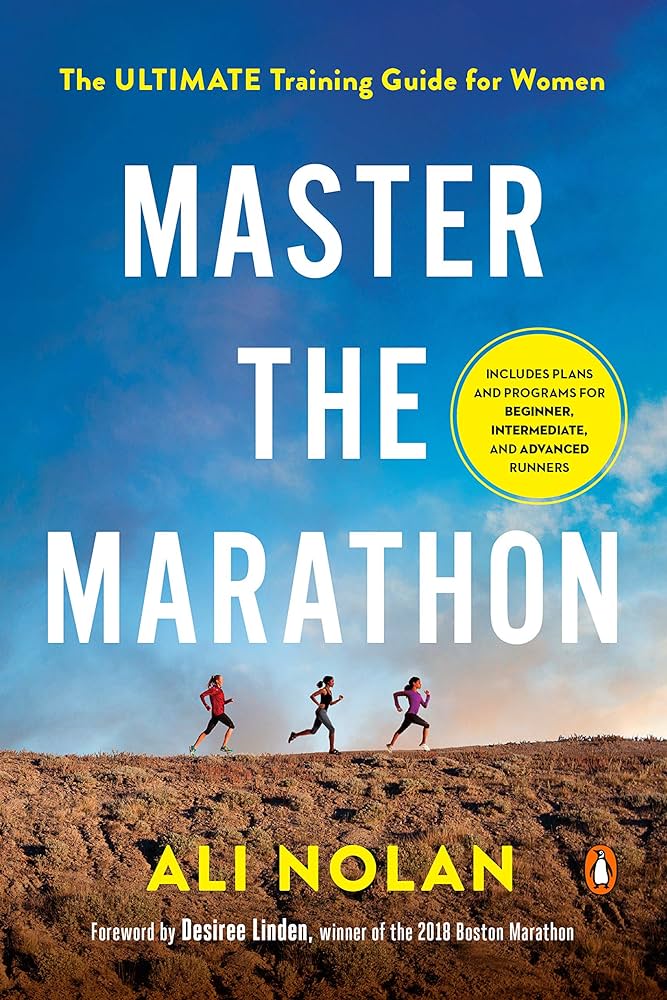Building a training plan, part 2: Straight from the source
In which I read fast and listen to podcasts at 1.5 speed
Part 1: What am I thinking??
In the past year or so, i.e. since I started actually training for races, I have consumed a slightly embarrassing amount of media related to running. Some of it is better than others. Before I start talking about the actual principles I've put together, I thought I'd list where (besides the DISboards obviously) those ideas come from.
 Advanced Marathoning by Pete Pfitzinger and Scott Douglas
Advanced Marathoning by Pete Pfitzinger and Scott Douglas. Despite the slightly intimidating title (I do not feel qualified for advanced marathoning), I actually think this is a pretty good introduction to marathon training specifically. The plans are unfortunately somewhat impractical, though, with frequent double-digit weekday runs. And you can tell a plan isn't meant for you when it prescribes a 7-mile lactate threshold run and your lactate threshold pace is like 8 min/mile.
 Daniels' Running Formula by Jack Daniels
Daniels' Running Formula by Jack Daniels. There are a lot of good ideas about running and training here, but I would not start with this book. It gets technical at times and is again obviously geared toward people who are already pretty fast. However, it does have tips for everything from 800s on up to marathons.
 Run Like a Pro (Even If You're Slow) by Matt Fitzgerald
Run Like a Pro (Even If You're Slow) by Matt Fitzgerald. This was an interesting look at the lives of pro endurance runners, and I
used and mostly liked the level 1 plan for the WDW marathon. Some of the principles of elite training are helpful, like the variety of workouts, the focus on mileage and time on your feet, and the balance of easy and hard efforts. I do think he's a little ambitious in applying elite principles to regular runners, though, as anything above the level 1 plans is seven days a week of running which doesn't seem like a great idea for most of us recreational athletes.
 Hansons Marathon Method by Luke Humphrey
Hansons Marathon Method by Luke Humphrey. This book is another good introduction to marathon training with the somewhat unusual take that most people should cap their long runs at 16 miles. Having read the book, I'm not necessarily tied to 16 miles specifically, but I don't plan to include any 20-milers in my schedule. (I didn't for my first marathon either.) I considered just using the Hansons beginner plan for MCM, but I would have had to adapt it anyway since the first 5 weeks are pretty low mileage by my current standards before it suddenly makes a big jump. Plus the workouts seemed kind of repetitive and there were other principles I wanted to try out.
 80/20 Running by Matt Fitzgerald
80/20 Running by Matt Fitzgerald. This book was fine, but I feel like it was mostly justifying the 80/20 principle which I already bought into so not necessarily the best use of time and attention. One thing that frustrated me was that in 252 pages, he never expressly states what 80 and 20 are percentages of. Time? Distance? Number of workouts? That really seems like a massive oversight. In any case I have concluded that time is the most relevant aspect to measure, but nowhere in the book does it actually say that.
 Master the Marathon by Ali Nolan
Master the Marathon by Ali Nolan. I wouldn't necessarily recommend this book for the actual running advice - some of it seemed a little off even in my limited experience - but I did like the mental training tips, which were a bigger focus of the book than in any other I've read. She purports to be writing for an audience of women, but there's actually not much in the book that wouldn't apply to anyone.
 Marathon: The Ultimate Training Guide by Hal Higdon
Marathon: The Ultimate Training Guide by Hal Higdon. This is a good book for people new to marathons/half marathons. If you already know the basics, it's probably not all that helpful, although the encouragement and positive approach can be nice. I did use his Novice 2 plan for my HM last year, but knowing what I know now, I don't think it's all that great - not enough variation in paces, not clear on WU/CD, and overly weighted towards the long run.
 ROAR by Stacy Sims
ROAR by Stacy Sims. More helpful for nutrition and hydration than for running as she talks through several endurance sports.
 Marathon Training Academy
Marathon Training Academy. The hosts, Angie and Trevor, are a married couple with entertainingly different approaches to running. Their guests have included experts, coaches from their team, elite marathoners, and average runners.
 Running Rogue
Running Rogue. I really like this one for training principles and ideas. The host, Chris McClung, is a running coach and does deep dives into various training tips. He really emphasizes keeping your easy runs easy and being thoughtful about your training in general, and I appreciate his low-key affect and clear presentation of ideas.
 Run to the Top
Run to the Top. This one features coaches from the Runners Connect site and sometimes guests, with a range of formats, lengths, and topics. Because of the variety, I find that some episodes are helpful and some aren't, and sometimes they say things that make me go

. So I wouldn't recommend it for an introduction, but it can be good as long as you can distinguish what's useful from what's not.
 I also enjoy Running for Real, the Run Duo, and the Rise and Run podcast, but I feel like those are more lifestyle podcasts that happen to be about running than training podcasts, so I'm just mentioning them briefly.
I also enjoy Running for Real, the Run Duo, and the Rise and Run podcast, but I feel like those are more lifestyle podcasts that happen to be about running than training podcasts, so I'm just mentioning them briefly.
 The Running Channel
The Running Channel. I generally find these videos to be fun, though they're not necessarily all that helpful when it comes to training. Sometimes they do share interesting workouts, though. They also have a podcast that I like.
 The Run Testers
The Run Testers. These are good for running-related product reviews, especially shoes.
 Strength Running
Strength Running. Probably the most training-focused of the YouTube channels I follow. About 7 years of videos about running, strength training, and so on.
 McMillan's Six-Step Training System, McMillan Running
McMillan's Six-Step Training System, McMillan Running. The most practically useful piece for actually constructing a training plan with a step-by-step process to follow. I don't think you could put together a good plan from just the information here, but it's been really helpful in terms of putting theoretical knowledge into an actual calendar.
 @running.yana
@running.yana. Demonstrations of drills and mobility exercises.
 @runtothefinish
@runtothefinish. Short infographics about training and racing.
 @theplantedrunner
@theplantedrunner. More training infographics, even for non-plant based folks.
 @yellowrunner
@yellowrunner. Ultra runner and strength training evangelist. She's about to do a 250 mile race

 @immrsspacecadet
@immrsspacecadet. Not for training but fun!
Do you have any favorite resources that aren't included here?






